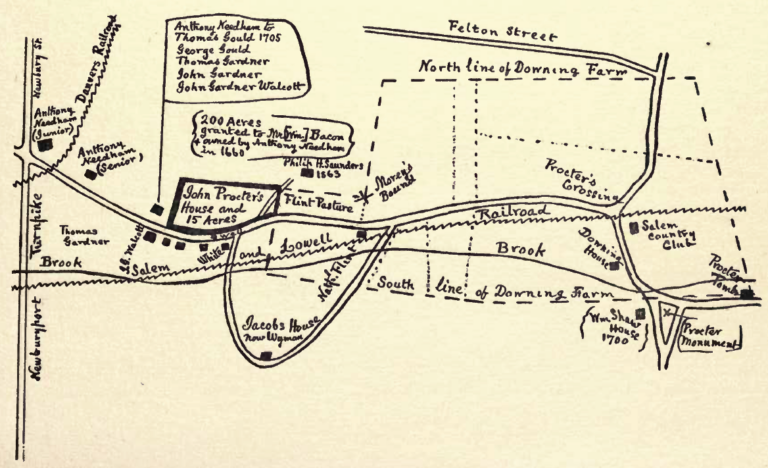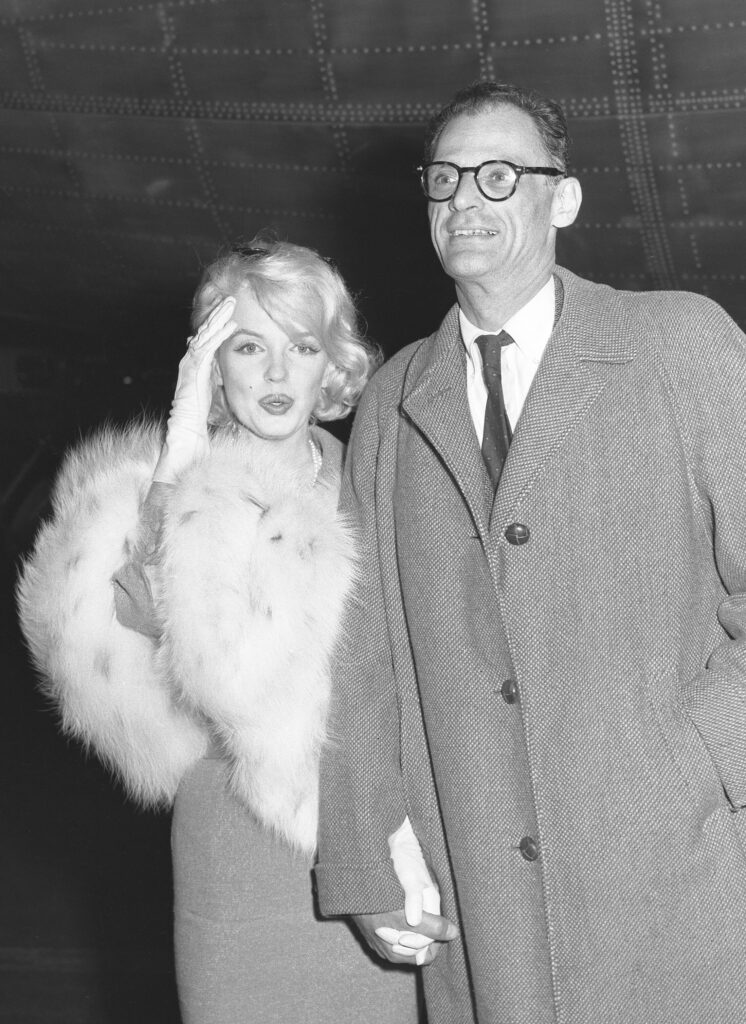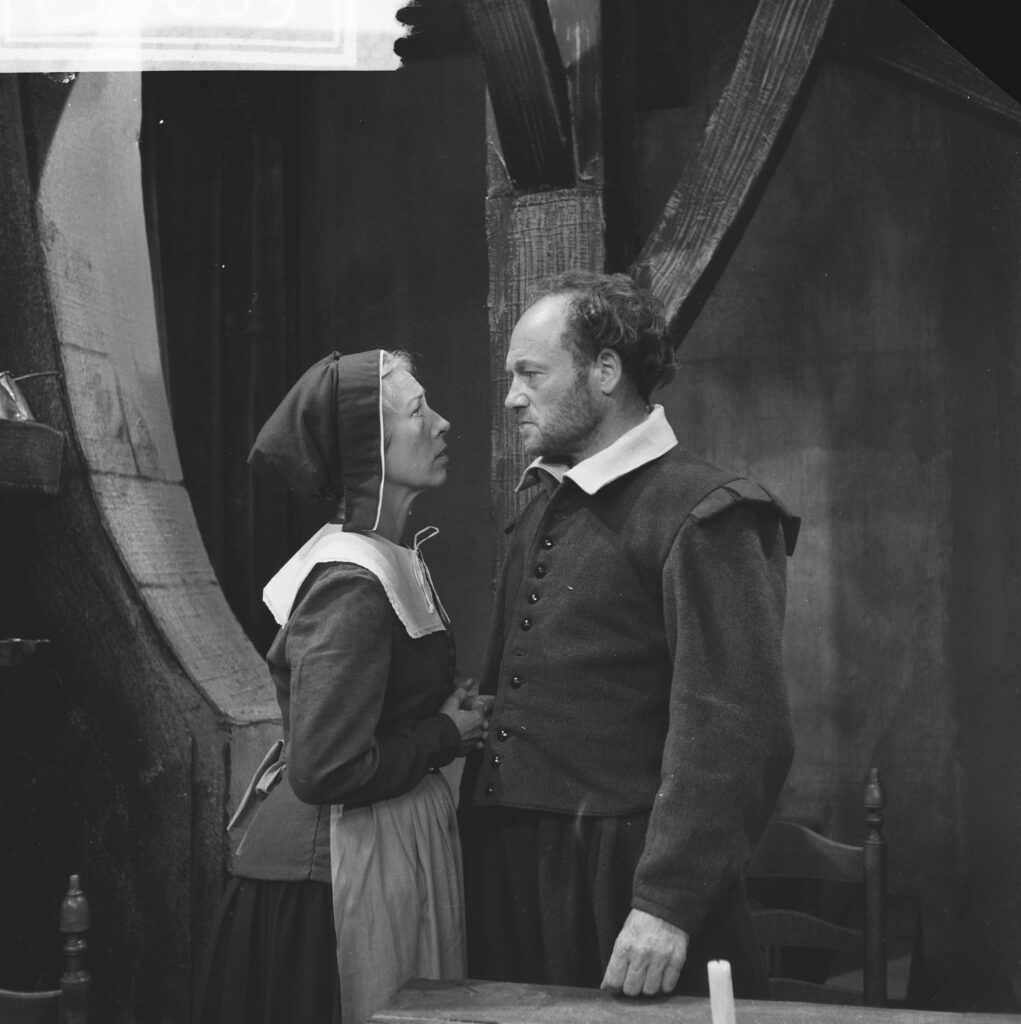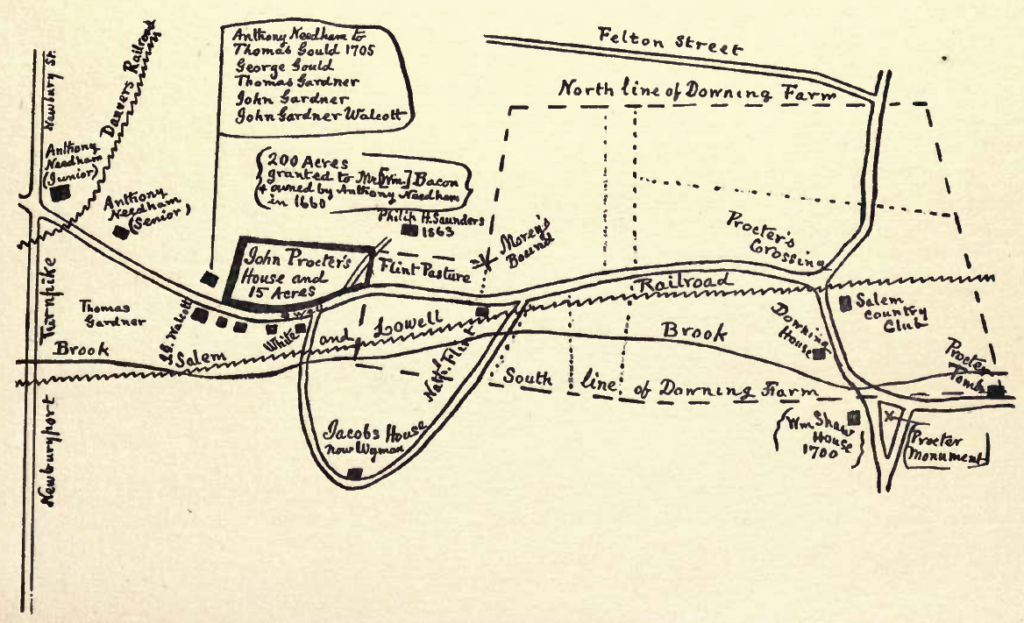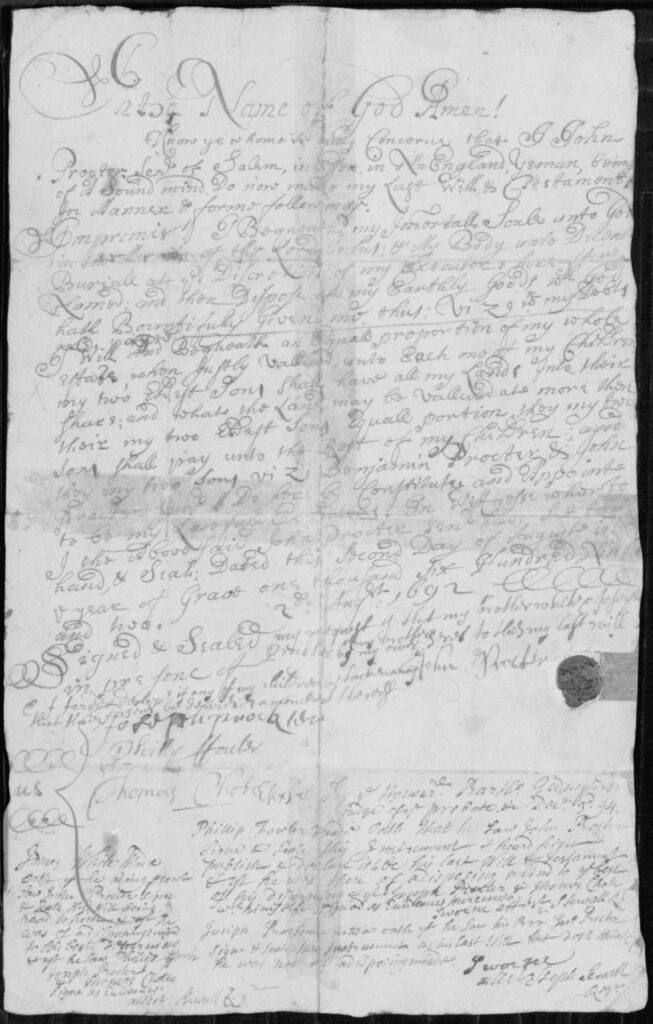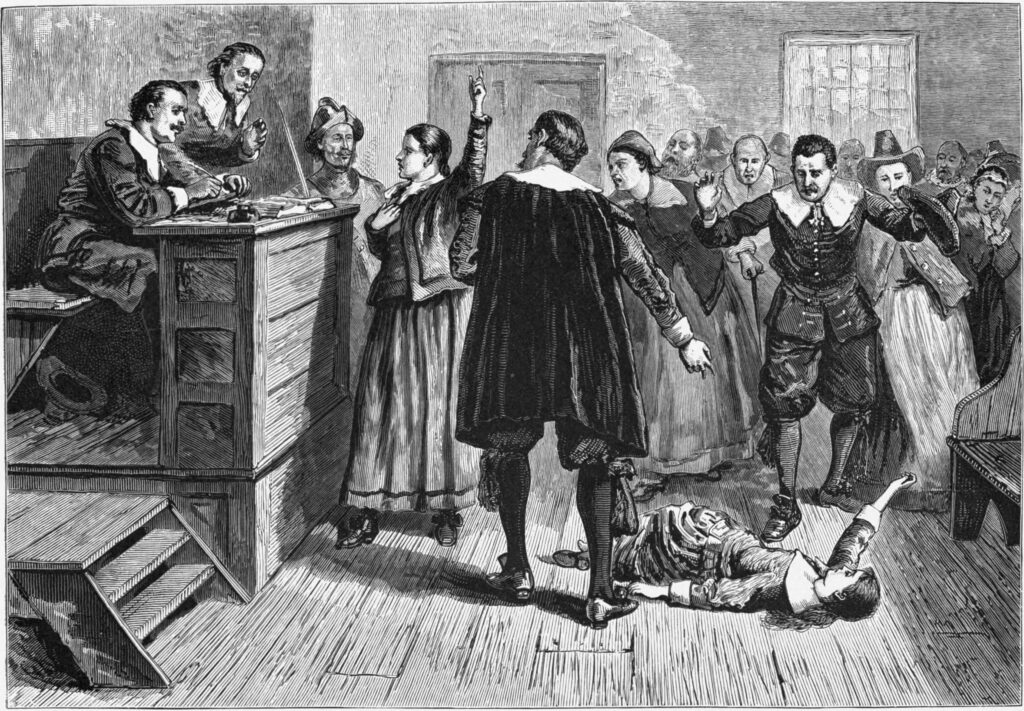Despite John’s dalliance in the play with Abigail Williams, John and Elizabeth, as Miller portrays them, are strong-minded individuals who still love and support one another. In one courtroom scene Elizabeth pleads with John to cast aside his pride and confess to witchcraft and thereby save himself from execution. The Salem court, Elizabeth sobs, is unjust and not worth dying for. Confession, they both know, will save his life, at least for a time. In 1692 individuals who confessed to acts of witchcraft were deemed to be harmless and were not regarded as a danger to the public. Indeed, in 1692 fifty-eight individuals offered confessions in which they named other suspects and only five confessors were convicted. None were executed.
In The Crucible, Elizabeth is ensnared when she is forced to testify about her knowledge of John’s affair with Abigail Williams. Elizabeth was aware of what had taken place, but she denies it in court out of her love for John and to save his good name, even though she had told Judge Danforth about it. Danforth quickly proclaims that Elizabeth had given false testimony and he upholds the charge of witchcraft against her. Elizabeth was caught in a lie, one of the court’s traps in 1692, to force self-incrimination and turn unwitting defendants into frightened confessors who were then required to name other suspects in order to save themselves, thus becoming accomplices of the court in ferreting out other suspected witches. This was the precise parallel that Miller saw between the efforts of the House Committee on Un-American Activities (HUAC), which grilled him about his acquaintances in the Communist Party, and the purpose of the Salem court.
In his close reading of some of the 1692 court records, Miller also picked up on an intriguing detail about the timing of Elizabeth’s pregnancy which kept her from the gallows. In the play, Elizabeth knows that she is pregnant well before she is arrested. In 1692 the witchcraft complaint against her is dated April 4, 1692. She was arrested seven days later on April 11 and examined by the Salem magistrates in court where John was also present. The next day both she and John were transferred to jail in Boston. Both were tried, convicted, and sentenced to death on August 5. John was sent to the gallows two weeks later on August 19, together with five others. But Elizabeth was not among them. Like John, she had refused to confess, but she had been granted a reprieve because she was pregnant. As the court did in such cases (there was one other in 1692), it agreed to postpone Elizabeth’s execution until after the birth of her child. Taking the life of an innocent unborn child was against the Puritan sense of God’s justice. The Salem court was closed at the end of October. In early February 1693, the newly established Superior Court was about to send Elizabeth to the gallows after she had given birth in jail in late January, but the governor stepped in and ordered her reprieved for a second time. She and her son remained in jail until May 1693, when she and the last of the remaining prisoners of the Salem debacle were freed.
In the play, Miller portrays the moment when John fully realizes the implications of Elizabeth’s pregnancy, that she will be spared the gallows until after the child is born. It is a poignant, almost silent scene in the last act, just before John is sent to the gallows, when he sees Elizabeth fully pregnant. They are alone, and their affection for each other transcends the traumatic circumstances of the moment. Miller gives the following stage instructions: “He reaches out his hand as though toward an embodiment not quite real, and as he touches her, a strange soft sound, half laughter, half amazement, comes from his throat. He pats her hand. She covers his hand with hers. And then, weak, he sits. Then she sits facing him.” Proctor: “The child?” Elizabeth: “It grows.” John then asks about their young sons, if they are safe, and she tells him they are well cared for. John replies, “You are a—marvel, Elizabeth.” She is pregnant, and he is amazed at her good fortune. His smile and comment that she is a “marvel” appear to suggest that he knows she will be reprieved and possibly escape the gallows altogether, which is what happened.
